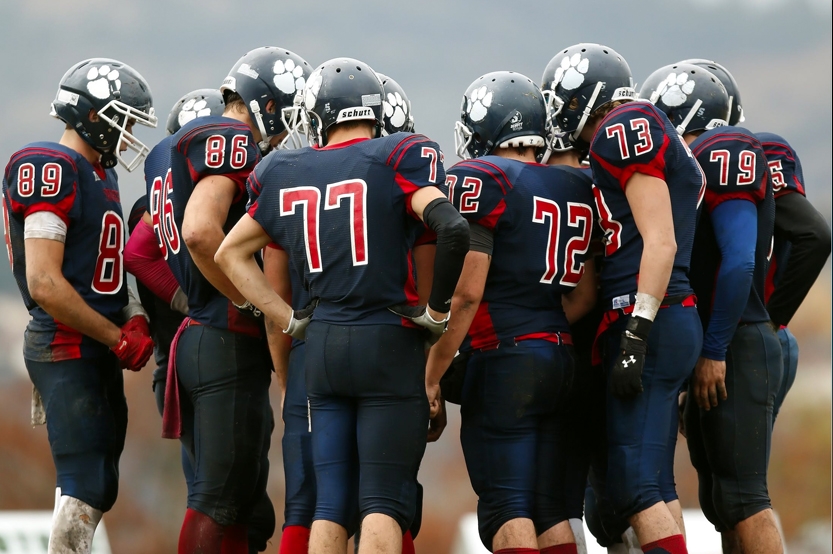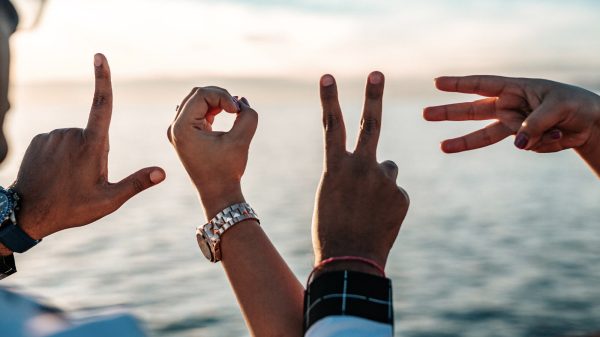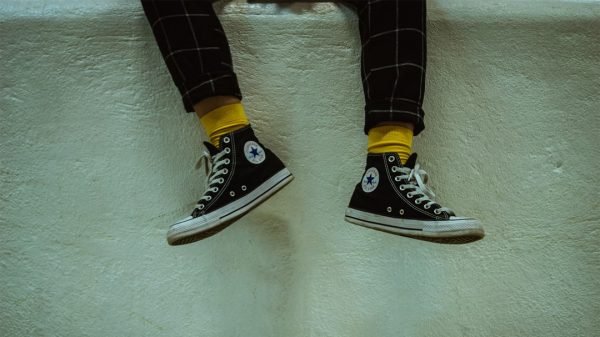We are getting more of our first openly-gay sportsmen and women for their particular sports than ever before. The 2020 Superbowl featured more LGBTQ+ representation in its ad break than ever. Even the WWE had an openly gay couple win a tag championship (and unlike Trish Stratus and Lita, they weren’t just playing up the sapphic vibes for the assumed straight male audience.)

However, when it comes to sports and the Ls, the Gs, the Bs, the Ts, and the Qs, there is still a lot of taboo to unpack, and a lot of work to be done.
The question of transpeople in sport
By far the most hot-button issue in sports at the moment, the question of trans athletes competing alongside other members of the gender they identify has stumped a lot of people. We have, of course, seen trans athletes compete against and alongside people of their gender identity, such as Dr. Renee Richards and Fallon Fox. However, the latter was forced to hide her status as a transwoman until 2013, while the former had to win a New York Supreme Court case in order to compete with other women.
The answer to this question isn’t a simple one, either, as many argue and have evidence to suggest that transwomen who transition have had the benefits of biologically male puberty, including longer reach, greater muscle mass, and the like. As it stands, just over a third of women and under a quarter of men support trans athletes participating with others of their gender identity. Support for trans athletes is higher amongst other members of the queer community, including gay, bi, and pan people, as well as other transmen and transwomen. Yet it seems the public still has a long way to go to find the answer to this particular question.
There are spaces being created for trans athletes in some areas of sports, however. For instance, the first trans hockey team has taken to the ice in Boston. However, this creation of bespoke spaces for trans people denies them the opportunity to be treated and to compete as their gender identity dictates to them.

There’s still a great risk to careers
There are gay men in every sport, there’s no denying that. However, there are still some sports and leagues that have no openly gay players. The NHL, for instance, hasn’t had even its first openly queer player. Not so much as a bi goalie. However, some research has shown that the reason for this might largely still be the threat of losing their job.
Sports sociologist Cheryl MacDonald did a study in which both straight former NHL players and six openly gay hockey players outside the NHL spoke on attitudes within hockey about queerness. While there was no seeming consensus on whether the NHL was homophobic, there was general agreement that the risk of losing one’s career by coming out would outweigh the benefit of coming out. The most commonly mentioned concern was that players could be fired for being a “distraction” and that this applied not just to coming out as gay, but also to publicly dealing with mental health issues, addiction, a history of abuse, and so on.
In male sports, in particular, there is also the question of what role toxic masculinity has to play in the management of teams and how gay people are treated. One example of the case of an openly gay man being denied the next step of his career was Michael Sam, who was drafted by the St. Louis Rams and competed well for them but ended up losing his roster spot to another athlete who was not outwardly gay.

The impact of the internet
The democratizing effect of the World Wide Web has served as something of a double-edged sword when it comes to the world of queer sports. For many, it’s a lot easier to see the negatives as opposed to the positives. Trolling is as popular as past-time for the spiteful as ever, as the internet has made it a lot easier for people to send abusive and homophobic messages directly to queer people who are coming out, as seen in the case of Dwayne Wade and Gabrielle Union who were forced to defend their gay son against a barrage of online attacks.
However, there is also the potential for the internet to do a lot of gay for LGBTQ sportspeople, especially the younger members of the community. One study by GLSEN found that LGBTQ youth do find a lot more bullying and harassment online, but that they also find a much stronger and larger network of supportive peers. It is thought that the internet’s role in making queer culture more acceptable is what has played the largest part in helping so many more people come out than they would before. It clearly isn’t the solution to all problems the queer community face, but it can be used for good.

The risk of losing fans
As it currently stands, many professional sportsmen and women do not make their money solely from being good at their chosen sport. They make money because they are able to draw fans, which also helps them draw sponsors. Homophobic jeers and insults are common on many sporting pitches around the world, often aimed at members of opposing teams regardless of whether or not there’s any indication they are gay. With such virulent homophobia being clear and present as the default, it’s no wonder that so many players are hesitant to come out as gay.
More than one-third of US soccer fans openly hold homophobic views, as one study has found. As such, for an athlete to come out, they have to risk the very real danger of losing a significant portion of their fans. Fan outcry can be enough to grab the attention of sponsors, which can risk a player losing their sponsorship and, in the worst-case scenarios, losing their job. Of course, there would be a risk of major blowback for any major sporting team that fired an openly-gay player for reasons related to their sexuality, but how many are willing to risk that?
Many teams are still desperate to avoid any kind of PR problem. Even if news coverage of players coming out as gay is primarily positive, it is still seen as a distraction, and not always in good faith. There are plenty of fans who take whatever reason they can to dismiss and criticize players who come out as gay, offering them an effective shield against criticisms of their own homophobia.

Could the problem be in the locker rooms, too?
Many of us like to think of the ideal team mentality and to apply it to the teams that we support. We might like to think that a good teammate will have their teammate’s back, no matter what the conflict they’re facing is. However, that’s not the perception of many in the teams, at least for gay men. There could be a problem with teams being able to accept openly gay men amongst them.
One study looked at the athletes that performed in the last three Summer Olympics and found a worrying trend. While 60% of openly gay women athletes participated in team sports, there was not a single man who was openly gay and also competed in a team. This isn’t to say that gay men aren’t competing in team sports, they just don’t feel comfortable sharing their sexuality. Research has shown that male sporting teams have had the effect of taking traditional masculine behaviors and heightened them, such as dominance and self-reliance. As such, behaviors that might defy these traditional masculine expectations, or be seen to defy them, could result in one being ostracized within one’s own team.
Other reports have shown that homophobic locker room talk is still very prevalent in team sports. Male athletes hear homophobic slurs both on the pitch or rink as well as amongst their own team members. Several players have attested to hearing slurs towards queer people used in locker rooms. It’s simply an accepted behavior by many men, and there are those who divorce the slur from its homophobic roots, but that’s of little help or consequence to gay mean who feel threatened by an environment of seemingly normalized homophobia.
Shaping the future of queer sports
Unfortunately, it has been proven time and time again that simply waiting for times to change isn’t enough. The fans, players, teams, and the organizers all play a role in making queer faces more acceptable in sports, and there’s still a lot of playground and locker room bullying to beat back. But the trend seems to be on the right side, at least.
As mentioned, we are seeing more and more players come out as being openly gay than ever before, and more leagues and teams even taking part in things such as Pride events. But it’s the fans who have to put on the pressure and to support LGBTQ players to effect real change.
Your "not that regular" all-around gal, writing about anything, thus everything. "There's always more to discover... thus write about," she says in between - GASP! - puffs. And so that's what she does, exactly. Write, of course; not (just) puff.


































































